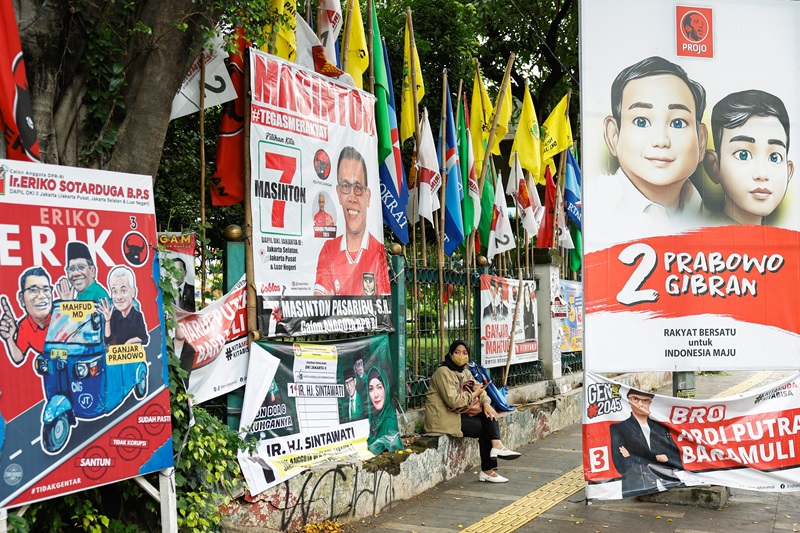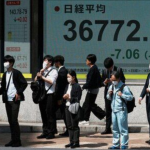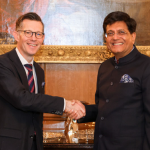
a woman sits near flags and posters promoting the presidential and legislative candidates ahead of general election in jakarta
205 million registered Indonesian voters can cast their ballots on February 14, selecting their presidential and vice presidential candidates, besides members of the House of Representatives, the Regional Representative Council, and provincial and local parliaments.
Indonesia remains the fourth-most populous country across the globe. Three candidates are vying to succeed incumbent President Joko Widodo, who is finishing the second of the maximum two terms allowed. They recently answered questions on human rights.
Prominent international NGO Human Rights Watch sent a questionnaire on key human rights issues facing people in Indonesia to the contenders on December 1, and said that it repeatedly followed up with their political teams.
Indonesia election: Candidates express opinions
Just two of the three presidential candidates responded – Anies Baswedan and Ganjar Pranowo. The third one, Prabowo Subianto, did not respond. The questionnaire provided the contenders a chance to publicly express their opinions on human rights concerns.
Elaine Pearson, Asia director at Human Rights Watch, said: “Two of the main political teams have done Indonesian voters a service by sharing their views on the critically important human rights issues affecting the country.”
“Politicians work hard to draw in supporters during elections, but voters should also be able to go beyond the rhetoric to compare actual positions, and hold the candidates to their word if they are elected,” added Pearson as per a recently released report.
Questions touch pressing human rights concerns
The deadline for submitting the answers was January 25. “Indonesian voters need to know [the candidates’] positions on many important issues that affect them and the communities in which they live,” Pearson further mentioned.
It has been informed that the questionnaire contained 16 important questions focused on women’s rights, children’s rights to education, the rights of LGBT people, labour rights, media freedom and freedom of expression.
Furthermore, other questions included policies on disability rights and protection of Indonesian migrant labourers, besides questions on policies that could address accountability for past violations including the crackdown against student activists in 1998.







